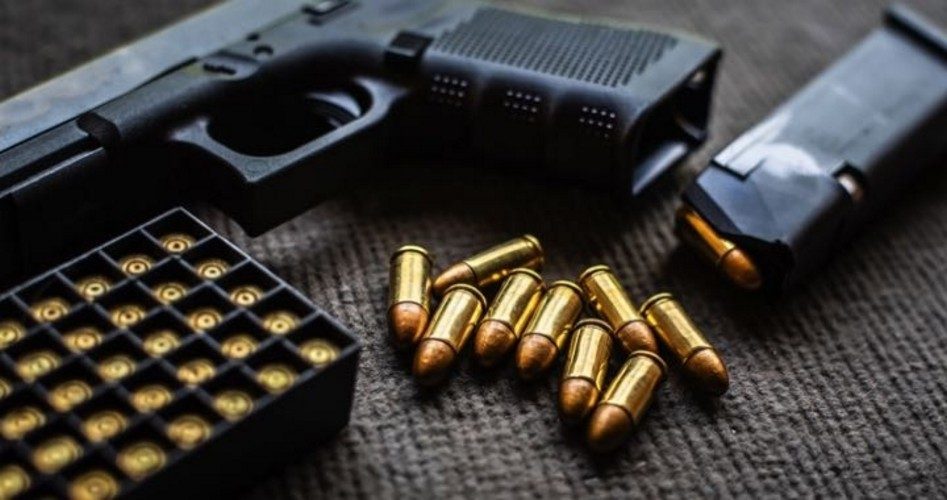
Podcast: Play in new window | Download ()
Subscribe: Android | RSS | More
Starting early last Monday morning, President Trump began calling his supporters and other policymakers for advice on what to do following the Dayton and El Paso mass shootings.
He spoke several times with Wayne LaPierre, the chief executive officer of the National Rifle Association (NRA). On Thursday LaPierre issued a statement condemning the push for more gun controls, including expanded background checks to include private sales and congressional pressure urging states (along with promises of federal money) to adopt red flag laws. LaPierre stated:
I’m not inclined to discuss private conversations with President Trump or other key leaders on this issue. But I can confirm that the NRA opposes any legislation that unfairly infringes on the rights of law-abiding citizens.
The inconvenient truth is this: the proposals being discussed by many would not have prevented the horrific tragedies in El Paso and Dayton. Worse, they would make millions of law-abiding Americans less safe and less able to defend themselves and their loved ones.
LaPierre added: “The NRA will work in good faith to pursue real solutions to the epidemic of violence in America. But many proposals are nothing more than ‘soundbite solutions’ which fail to address the root of the problem, confront criminal behavior, or make our communities safer.”
The next day Trump’s Tweet appeared to indicate a softening of his stance that his administration had to do something, even if it risked losing critical support of his primary base: gun owners. He tweeted:
Serious discussions are taking place between House and Senate leadership on meaningful Background Checks. I have also been speaking to the NRA, and others, so that their very strong views can be fully represented and respected.
But he added:
Guns should not be placed in the hands of mentally ill or deranged people. I am the biggest Second Amendment person there is, but we all must work together for the good and safety of our Country. Common sense things can be done that are good [for] everyone.
This sounded like a repudiation of previous promises made by the president. He told his supporters at the recent NRA annual meeting, “Your Second Amendment rights are under siege. But they will never, ever be under siege as long as I am your president.”
Rush Limbaugh was quick to remind his listeners that another law wouldn’t change anything: “There’s not a single new law that would change anything. The only thing a new law would do is it would drive a wedge between Trump and his voters and the NRA. Because, make no mistake, they [anti-gun politicians] want your guns. They want every gun you’ve got as quickly as they can get it.”
John Barrasso (R-Wyo.), the No. 3 Senate Republican said, “I have a lot of concerns about the due process component of [red flag laws] and I don’t want to punish law-abiding citizens.”
Alan Gottlieb, chairman of the Second Amendment Foundation, said he was one of those the president had called during the week about a “range of ideas” following the mass shootings, including red flag laws and the resurrection of the 1994 Clinton ban of semi-automatic rifles. He said, based on his conversation with the president, that there is “no way” the White House would back such a resurrection: “There’s no justification for banning those because less than 1 percent ever get misused to start with. There are millions in civilians’ hands right now. What are you going to do, go door to door and confiscate them?”
Michael Hammond, legislative counsel for Gun Owners of America (GOA), described red flag laws as allowing “police to convene a Kafkaesque secret proceeding, in which an American can be stripped of his or her gun rights and Fourth Amendment rights, even though [they] are barred from participating in the hearings or arguing their side of the dispute.… If the Constitution can be suspended in a secret hearing, where does this lead?”
Matt Schlapp, a close ally of the president and head of the American Conservative Union (ACU), said, “I don’t think the president or his Republican allies are going to become … advocates of aggressive gun control.”
Neither does ferocious anti-gun Senator Chris Murphy (D-Conn.) who admitted: “The question is, what difference can the federal government make in what is largely a state decision [on red flag laws]. I’m all for federal action on extreme risk protection orders (ERPOs). I’m just not sure it’s going to move the needle.”
Nor does the anti-gun New York Times. Said the paper, the president’s past “flip-flops” on background checks “raises questions about his real commitment to legislation that would improve the background check system.”
Liberal Politico agrees:
The odds of serious gun control legislation clearing Congress and being signed into law remain slim. [Senate Majority Leader Mitch] McConnell has shown no interest in the past; the same goes for his conference.
And the same pattern has played out over and over: a public outcry after a mass shooting, followed by hand-wringing among lawmakers for a few days or weeks, before the issue fades.
There are other more cerebral reasons that legislation being proposed is unlikely to gain purchase once the media-inspired angst quiets down. Judge Andrew Napolitano declared flat out that “red flag laws are unconstitutional,” while Bryan Fischer (host of Focal Point on American Family Radio) claims that they put “your right to own a firearm into the hands of the American Psychological Association or the American Psychiatric Association, who will set the standard for the mental health community. No thanks.”
As the drumbeat for more infringements of the Second Amendment recedes with the passage of time, so do the chances of them coming to the front doors of American gun owners. The Second Amendment remains the “third rail” of American politics, and politicians, including the president, touch it at their own risk.
Photo: somboon kaeoboonsong / iStock / Getty Images Plus
An Ivy League graduate and former investment advisor, Bob is a regular contributor to The New American primarily on economics and politics. He can be reached at [email protected].
Related article:
Pelosi Asks Trump to Call a Senate Vote on House-passed Gun Control


